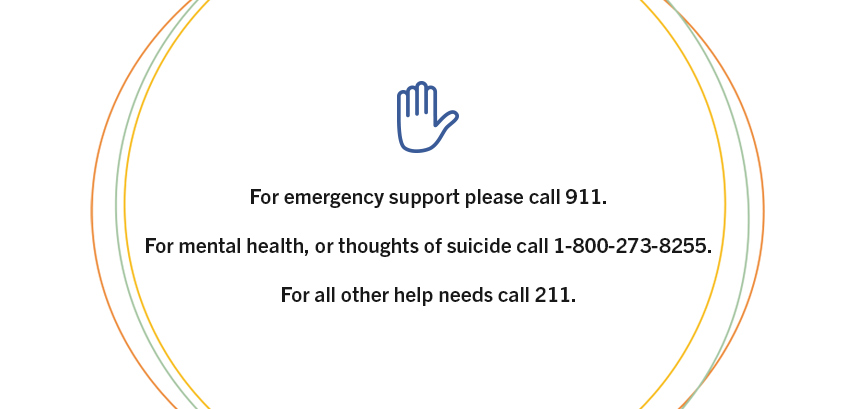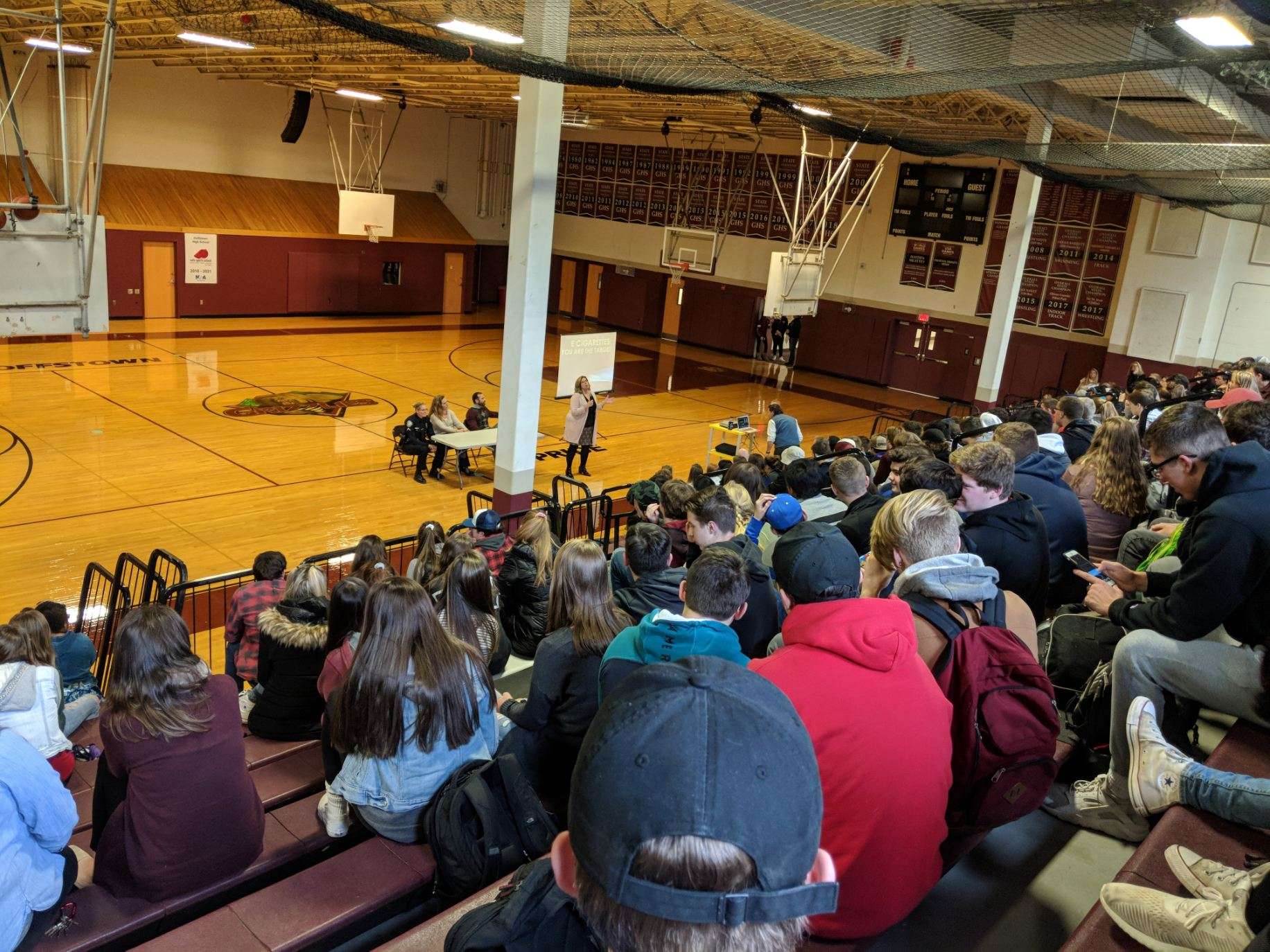This afternoon, the same day that the FDA released the latest numbers on vaping — up 80% among youth with 1 in 5 high school students reporting having vaped in the past 30 days, Goffstown High School held an assembly about the dangers and consequences of vaping. “Something needs to be done,” a GHS student said of the vaping epidemic taking hold on his friends and classmates during September’s Youth Forum meeting.
Youth Forum, a program of Crispin’s House Coalition for Youth in partnership with GHS, has been convening monthly for over 25 years. Students, co-convener and guidance counselor extraordinaire John Webb, and trusted adults from the community come together each month to work on issues and concerns that are important to students and their peers. With the support of adults, youth take action to make their school and community a healthier place for all.
Today’s vaping assembly — the latest of countless initiatives between youth and adults born at the Youth Forum table — began development in September when it was clear that students were tiring of vaping taking over their restrooms at school and grabbing hold on a growing number of their peers. It was decided that they would hold an optional assembly to get REAL about vaping, during the school day. Adults supported the initiative by bringing together the expert panel — Laurie Warnock from the Poison Center, Todd Lavallee, Dean of Students, Shannon Hebert, Student Assistance Counselor, and Officer Pelletier, the Student Resource Officer from GPD. Crispin’s House, the DEA of New England, and other community partners worked to pull together the most knowledgeable resources to speak on the panel about the facts, risks, and consequences of this growing epidemic.
The turnout of students attending this optional assembly was huge! Over 250 youth were in attendance and engaged with the presentation. Vaping is clearly a serious issue in middle and high schools across the country, and GHS students are ready to take it on! Given a voice, youth will work hard to keep themselves and their peers informed and healthy. Will this be the next generation of youth addicted to nicotine, or the generation to create positive change and not be used as the key marketers for big tobacco? When youth are empowered to make informed, healthy choices, big tobacco loses, and the health of future generations prevails.




